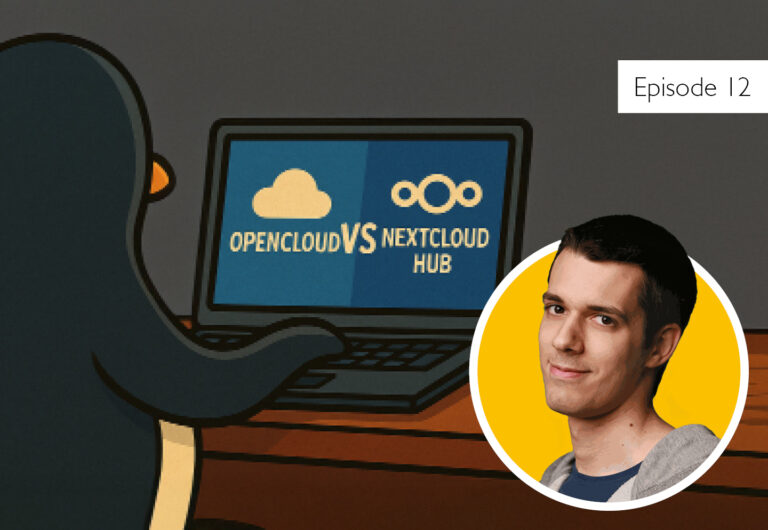Morrolinux: Open Source “Dropboxes” – OpenCloud vs. Nextcloud Hub

Someone from the community asked me a straightforward question: “Morro, is there a free and open source alternative to Dropbox that works well for personal use, but also fits the needs of companies — especially now that data sovereignty matters more than ever in Europe?”
Immediately it was Challenge accepted!
Because sure, I could’ve said the obvious: Install Nextcloud Hub. But the truth is more nuanced. Nextcloud is powerful, yes, but it’s not always the easiest solution. It’s big and opinionated, and wants to be your entire digital office. That’s great… unless you already have a digital office and just want to sync some files.
That’s when I stumbled on OpenCloud, and suddenly we had a two-horse race. Let me tell you why that matters.
From “One More Dropbox Clone” to “Wait, This Just Works?”
OpenCloud was born after KiteWorks acquired ownCloud, prompting some of its core developers to start fresh. Building on experience from earlier microservices work based on the Go language, they set out to create a lean, efficient platform with one clear mission: make file syncing boring again.
And it works. My instance runs on a €3 VPS. Yes, really. Just Docker Compose, an .env file, and a mounted S3 bucket via Cubbit.
My OpenCloud installation is perfect for what it’s meant to do:
- I share folders with clients — securely, with expiry dates and upload-only links.
- I sync files, photos, and markdown files across devices.
And if you’re thinking “Wait, where’s the office suite? The calendar?” No: they are not built-in. That’s kind of the point. It is possible, although not straightforward, to add them via integrations like Collabora for office documents and Radicale for calendar sync.
But What If You Do Want the Suite?
That’s where Nextcloud Hub shines.
Imagine if Google Workspace, Microsoft 365, and a Debian server had a baby — that’s Nextcloud Hub. And it’s not just file storage: it’s video calls, collaborative docs, shared calendars, email integration, SSO, LDAP… the whole deal. Many of these enterprise-oriented features, including SSO, are also supported in OpenCloud.
Nextcloud Hub is perfect for:
- Nonprofits who want privacy but need full groupware
- Schools replacing Google Classroom
- SMEs escaping vendor lock-in
- Anyone who says: “Actually, I need everything in one place.“
Is it heavier? Sure. You’ll want decent hardware, and maybe a bit more sysadmin confidence. But it rewards you with serious capabilities.
No Wrong Answer — Just the Right Tool
In the end, it’s not OpenCloud vs. Nextcloud.
It’s OpenCloud and Nextcloud — depending on what you need.
Want Dropbox without the drama? Go with OpenCloud.
Want Google Workspace, but with no data mining? Nextcloud Hub is your friend.
Either way, you’re not handing your data to a black box. You’re self-hosting. You’re learning. You’re growing your stack of open source tools — and maybe those of your students, clients, or coworkers too.
That’s what free software is about, isn’t it? And if you’re setting it up and thinking “Should I get certified while I’m at it?” — you know where to start: learning.lpi.org.
This article is inspired by Moreno Razzoli’s video in Italian: Mi sono fatto il MIO Dropbox personale (I created MY own personal Dropbox.)
<< Read the previous post of this series | Read the next post of this series >>
